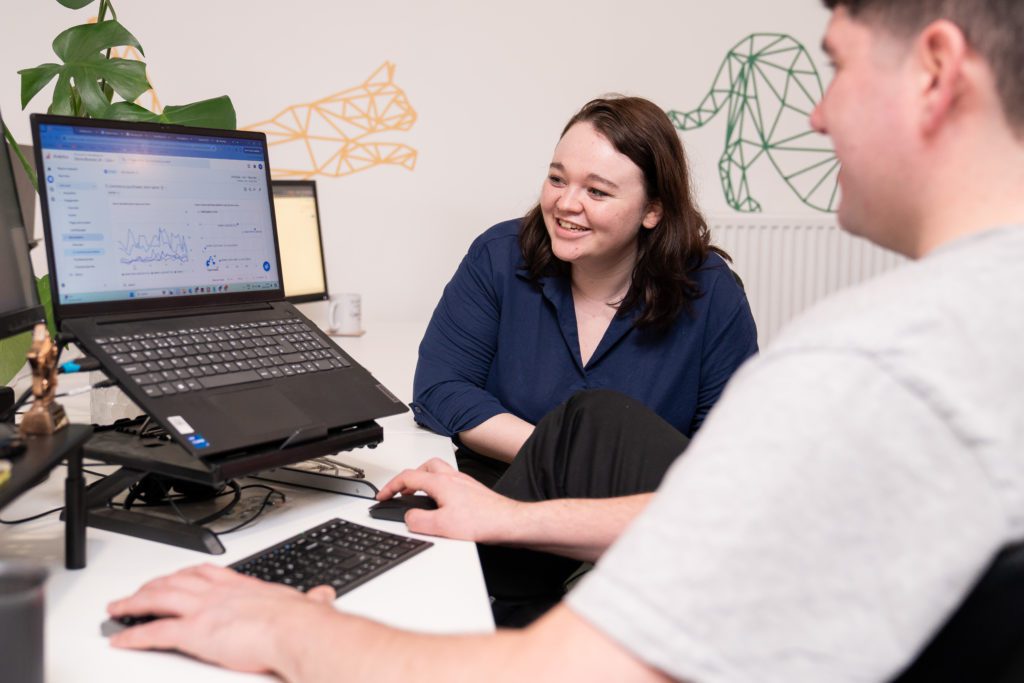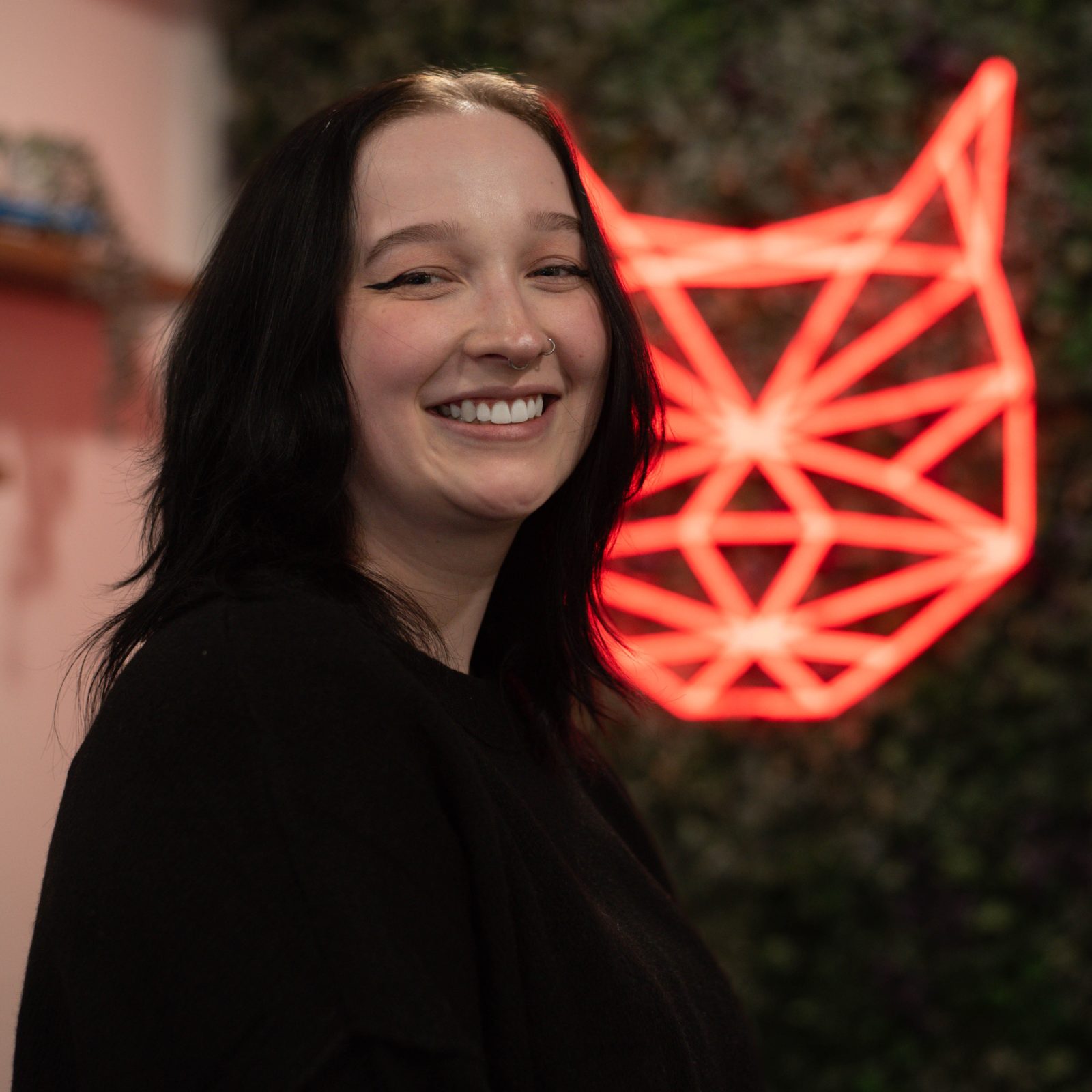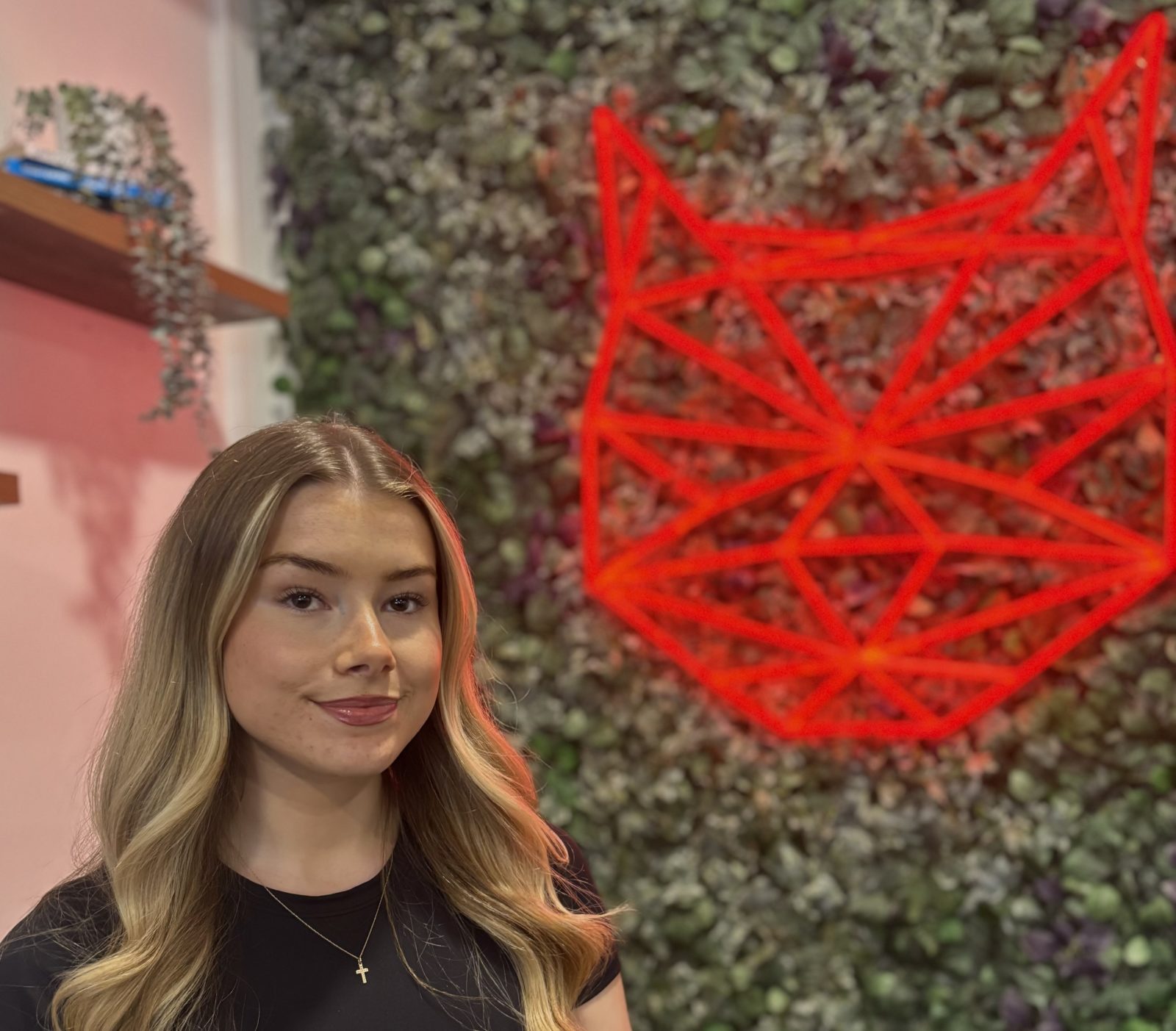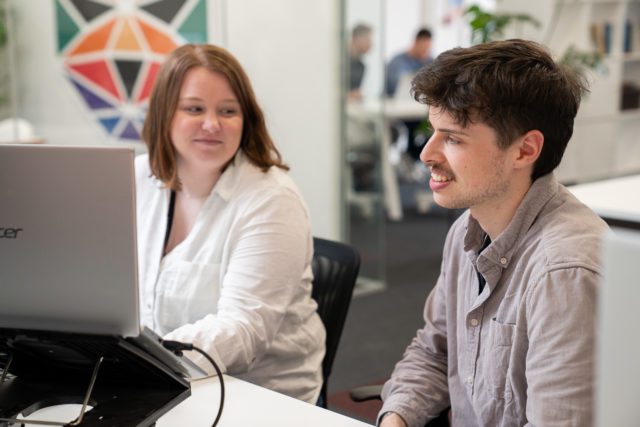At Wildcat Digital, we have PPC experts who try to keep jargon to a minimum when explaining performance to clients. Although our priority is building and maintaining your campaigns, another part of our job is ensuring that you understand the how and why behind our decision-making. In this article, our aim is to help you understand what the figures in your reports and dashboards actually mean. But first, let’s establish what some of the main KPIs of PPC actually are:
The key KPIs in PPC that help you understand how your campaign is performing include:
Continue reading to find out what these acronyms and metrics actually mean and how they can be utilised to measure a campaign’s success.

A KPI (or Key Performance Indicator) indicates how well your campaigns are performing in relation to the overarching goals of your business. Your KPIs will be unique to your business depending on what you consider to be a success.
If you’ve not set up a KPI before, they should follow SMART guidelines – Specific, Measurable, Achievable, Relevant and Time-Bound.
As an example, an eCommerce start-up may have a KPI to increase the total number of online sales by 300% by Q3 of the year.
Another example may be a well-established, nationwide company that has the KPI to improve customer retention by 30% in the next 6 months.
Tracking the KPIs in your PPC campaigns allows you to gauge the effectiveness of your strategy, and make decisions that are data-driven.
Monitoring your KPIs on a regular basis allows you to consistently identify the areas in need of improvement and optimise your strategies accordingly.
When running a PPC campaign, there are a variety of metrics and KPIs that will help you to understand how the campaign is performing, and what you can do to improve performance. Here are the key metrics to look at.
Reach refers to the total number of unique users who have seen your ad. This is important for understanding the size of your potential audience and helps gauge whether you’re successfully reaching new customers. For brand awareness campaigns, maximising reach is often a key objective. Monitoring reach ensures your targeting is broad enough, and a high reach with low engagement can indicate that your targeting might need refining.
Impressions, on the other hand, track how many times your ad is displayed, regardless of whether it was clicked. Impressions measure your ad’s visibility and are important for campaigns focused on brand exposure or retargeting. However, if impressions are high but clicks or conversions are low, it may be a sign of ad fatigue. In this case, rotating ad creatives or adjusting your targeting could help refresh audience interest.
Frequency measures the average number of times a unique user sees your ad. While repeated exposure can improve brand recall, showing the ad too often can lead to diminishing returns and even annoy your audience. If your frequency is too high and engagement is dropping, it may be time to change up your ads or refine your targeting
Meta Campaign:
Cost Per Click (CPC) is a crucial performance indicator in Pay-Per-Click (PPC) advertising that measures how much you pay each time a user clicks on your ad. It directly affects your advertising costs and overall campaign effectiveness, making it essential for budget management and achieving a positive return on investment.
CPC is important because lower CPC allows for more clicks within your budget, while high CPC often indicates competitive keywords or less relevant ads. Improving ad relevance and targeting can help reduce CPC and increase visibility.
To use CPC effectively, adjust your bidding strategy to keep costs manageable without sacrificing ad placement. A high CPC with low engagement may indicate a need for better targeting or ad copy. Track CPC alongside conversion rates to ensure your campaigns remain profitable.
To summarise this, optimising CPC helps reduce costs and maintain ad effectiveness, driving better ROI for your PPC campaigns.
Cost Per Mille (CPM) is a crucial metric in Pay-Per-Click (PPC) advertising that measures the cost of acquiring 1,000 impressions of your ad. It is particularly valuable for campaigns aimed at brand awareness and visibility rather than direct conversions.
CPM is important because it indicates how effectively your brand reaches potential customers; a lower CPM results in greater exposure. It also helps allocate budgets wisely across channels and offers insights into ad effectiveness. Higher CPMs without engagement may suggest the need for targeting or creative adjustments.
To use CPM effectively, focus on increasing brand awareness, especially during product launches. Combine it with metrics like Click-Through Rate (CTR) to evaluate performance. If CPM is high, refine your targeting or ad creatives to improve relevance.
In summary, CPM is essential for assessing ad impressions, helping manage budgets, optimising strategies, and enhancing brand visibility.
Click-through rate (CTR) represents the percentage of users who click on your ad after seeing it, calculated by dividing the number of clicks by the number of impressions and multiplying by 100. A high CTR indicates that your ad is compelling and relevant, which can improve your Quality Score on Google Ads, potentially lowering your cost per click (CPC) and enhancing ad placement.
To improve CTR, benchmark against industry averages, conduct A/B testing with different creatives and headlines and refine your audience targeting if your CTR is low.
Interaction Rate measures the percentage of users who engage with your ad in various ways, such as clicking, hovering, or watching videos. This metric provides insight into how effectively your ad captures user interest beyond just clicks. A high interaction rate indicates strong user engagement, which can inform future ad strategies. To leverage this metric, evaluate which ad elements drive interactions, tailor engaging content, and compare interaction rates across platforms to identify where your audience engages most effectively.
To summarise this, CTR and Interaction Rate are critical for assessing the effectiveness of your ads. By monitoring and optimising these metrics, you can enhance ad performance, improve targeting, and achieve better campaign results.
Learn more about CTR in our dedicated blog, What is Click Through Rate in PPC?
Conversion Rate is a performance indicator in advertising that measures the percentage of users who complete a desired action, such as making a purchase or submitting a lead form, after interacting with your ad, website, or landing page.
It is calculated by dividing the number of conversions by the total number of visitors and multiplying by 100. A higher conversion rate indicates effective marketing efforts and demonstrates campaign success while improving this rate can lead to a better return on investment (ROI) from your marketing spend.
Tracking conversion rates provides insights into user behaviour, helping you identify which elements resonate with your audience. To effectively use this metric, establish conversion goals and conduct A/B testing on different ad creatives and landing pages.
If conversion rates are low, analyse user behaviour to identify possible barriers, such as slow load times to your website, unclear messaging or bad creativity. In summary, optimising conversion rates is essential for enhancing campaign performance and improving ROI.
Search Impression Share (IS) is a metric that measures the percentage of times your ads were shown compared to the total number of times they could have appeared for a specific search query. This metric provides insights into the visibility and performance of your ads relative to competitors. This metric is crucial for evaluating how visible your ads are to potential customers; a low impression share may indicate budget limitations, low bids, or narrow targeting.
By comparing your impression share with competitors, you can gain insights into your ad’s effectiveness and identify areas for improvement. Additionally, tracking related metrics such as Lost Impression Share (Budget) and Lost Impression Share (Rank) can help pinpoint reasons for missed opportunities. High values here suggest a need for budget increases or better ad quality.
Metrics like Absolute Top Impression Share and Top Impression Share further inform you about your ad’s visibility in top positions on search results pages. In summary, monitoring Search Impression Share and its related metrics is essential for optimising campaign performance and enhancing overall ad visibility.
Cost per Conversion, also known as Cost per Acquisition (CPA), is a performance metric that measures the average amount spent to acquire a desired action, such as a sale or lead. In Google Ads, CPA is calculated by dividing the total cost of a campaign by the number of conversions achieved. For example, if you spend £1000 on a campaign and gain 100 conversions, your CPA would be £10.
Monitoring and optimising CPA is crucial for ensuring your advertising budget is spent effectively; strategies such as automated bidding, A/B testing, and refined audience targeting can help improve your CPA and overall campaign performance.
Return on Ad Spend (ROAS) is a crucial metric that measures the revenue generated for every pound spent on advertising, helping to assess the effectiveness of ad campaigns in driving sales and evaluating the overall profitability of marketing efforts. For instance, if you spend £1,000 on an advertising campaign and generate £5,000 in revenue, your ROAS would be 5, indicating that for every £1 spent, you earned £5 back.
A higher ROAS reflects a more effective ad campaign, while a ROAS lower than your break-even point may suggest the need for optimisation. ROAS can be calculated as the ratio of total conversion value to total ad costs, providing a valuable metric for understanding advertising investments and reinforcing the importance of measuring revenue generation against advertising costs.
Now you know all about the key KPIs and metrics in PPC, why not learn more about digital marketing metrics with our GA4 Glossary?

At Wildcat Digital, we specialise in helping businesses maximise the performance of their PPC (Pay-Per-Click) campaigns by carefully tracking and optimising key performance indicators (KPIs) across multiple platforms. We understand that no two businesses are the same, which is why we utilise a combination of advertising channels, including Meta Ads, Google Ads, and other leading platforms, to deliver results that align with your specific goals.
We provide comprehensive tracking and reporting to give you full visibility of your PPC performance across all channels. Our data-driven insights allow you to make informed decisions, ensuring that your advertising efforts are always aligned with your business goals. Let us help you take control of your PPC campaigns, track your KPIs, and achieve measurable results that drive growth for your business.
Get in touch today for a free consultation or to learn more about our PPC services.

Founder
Our founder, Will Hitchmough, worked at a number of high profile Sheffield Digital Agencies before founding Wildcat Digital in 2018. He brings an extensive knowledge of all things related to SEO, PPC and Paid Social, as well as an expert knowledge of digital strategy.
Digital Marketing can be a minefield for many businesses, with many agencies ready to take your money without knowing how to deliver results. I founded Wildcat Digital to deliver digital success to businesses with smaller budgets in a transparent way.

Head of Growth
Rich joined us in May 2024 to head up our growth team. With years of experience helping other agencies to grow, Rich joins us at an exciting time as Wildcat is working on a five-year plan to become one of the biggest agencies in the UK.
Outside of work, Rich is a father to three children, which keeps him very busy! He’s also recently started running again to keep fit and loves a bit of DIY.

Head of Digital
Sarah joined Wildcat in January 2025, bringing over seven years of SEO expertise to the team. With a background in Fashion Communication and Promotion, she has worked both in-house and at agencies, covering a range of digital marketing specialisms before focusing on SEO.
Passionate about all things search, Sarah thrives on helping brands grow their online presence.
Outside of work, she enjoys walking her dog, running, and shopping for vintage clothing.

Office Manager
Amelia joined Wildcat Digital in January 2025, bringing extensive experience in HR, Health & Safety, Facilities Management and IT Support. Previously an Operations Manager at The University of Sheffield, she has a strong background in creating efficient and well-organized work environments.
Specialising in HR, Health & Safety, and Facilities Management, Amelia ensures the Wildcat Digital team has the resources and support needed to thrive. Whether managing office operations, maintaining compliance, or fostering a positive workplace culture, she keeps everything running smoothly.
Outside of work, Amelia loves trying new things, traveling, camping, and walking. She also enjoys socialising and exploring new places with friends and family. Her adventurous spirit and proactive approach make her a valued member of the team.

Client Success Coordinator
Siena joined us in 2023 with a background in sales and digital marketing. She leads on client relationships across the company, ensuring that our customers are happy throughout their journey with us, from their initial consultation through to onboarding and beyond.
Outside of work, Siena enjoys travelling and getting stuck into the local culture. She likes to make the most of her experiences and particularly enjoys watching sunrises and sunsets from beautiful locations around the world.

SEO Account Director
Paul has a strong background in SEO, having previously founded and ran a successful eCommerce business, as well as running a personal blog that achieves an average of 17K users per month. Paul’s knowledge of SEO is extensive, with a strong emphasis on client handling and technical SEO.
Outside of work, Paul enjoys spending time with his family and staying active with weight lifting and combat sports.

Team Lead & Technical SEO Account Manager
With a degree in Computer Science and SEO experience dating back to 2017, Dariusz has a wide range of SEO skills and knowledge. His specialist knowledge of Technical SEO has firmly landed him the title of Wildcat’s Technical Wizard, and he has recently taken on the responsibility of Team Leader for the Panthers Team.
In his spare time, Dariusz loves hiking, experimenting and trying new coffees and loves learning new things. He is currently learning more about CRO and AI and how this could benefit our clients.

Team Lead & Senior SEO Account Manager
With a background in sales, Molly is a natural Account Manager, brilliantly handling any issues that come her way. Having joined us as a Digital Marketing Executive, and working part-time through her final year of University, Molly is a shining example of how hard work pays off. She is now an SEO Account Manager with a particular interest in Content and Client Management.
In her spare time, Molly loves to get out in nature, hiking and exploring the Peak District. She also loves cooking and likes to unwind with a bit of yoga.

PPC Team Leader
Libby joined Wildcat in 2021 as our first PPC hire. With a degree in Digital Media Production, a Master’s in Digital Media Management and previous experience in Social Media Management, Libby hit the ground running and has since climbed the ranks to Senior PPC Account Manager and has a particular interest in the eCommerce sector.
Outside of work, Libby likes gaming, and cooking and likes to keep active by lifting weights.

Senior SEO Account Manager
With a degree in Film and TV production, and a varied career history, Jamie made the move to marketing with a Masters degree in Digital Media Management. He has since worked in SEO at Agencies across Sheffield, before joining Wildcat and working his way up to SEO Account Manager. Jamie has a particular interest in backlinks and Digital PR and has recently gained a client a valuable backlink from Forbes!
In his spare time, Jamie is an avid foodie and loves trying new restaurants and cuisines. He also loves to travel and spent a year travelling to Australia after university.

SEO Account Manager
Jasmine joined Wildcat in 2022 with a strong background in SEO and Account Management. At the time, she was finishing up a Level 4 Apprenticeship in Digital Marketing from the Chartered Institute of Marketing, and has since worked her way up to SEO Account Manager. Jasmine excels at content writing and promotion, and particularly enjoys finding creative ways to join the dots on multi-channel campaigns.
In her spare time, Jasmine volunteers at a charity, helping combat loneliness & social isolation experienced by older neighbours. Outside of Wildcat, she owns a catering company, Savery Grazing, creating delicious grazing tables & platters for a range of events. She also loves skiing and exploring the Peak District.

Senior SEO Executive
After spending ten years managing businesses, restaurants, cafes and event spaces across Sheffield, Jon decided to change careers and joined Wildcat as an SEO Executive in 2022. He especially enjoys the client management side of the job, helping them to understand digital marketing and ways in which they can build their business’s presence online.
Outside of work, Jon likes to keep fit with running, badminton and football, and also loves music.

Senior SEO Executive
Andy joined Wildcat in 2023 after starting his digital marketing career in-house for a local Sheffield company. Since joining, he has developed a strong interest in Technical SEO and has strong skills in Account Management.
Outside of work, Andy loves music and plays in a couple of bands. He also enjoys rock climbing, cycling, photography and good food.

PPC Executive
Before joining Wildcat, Tom worked across different industries, building skills in sales and customer service. He later developed a passion for digital marketing whilst working on personal marketing projects and freelance ventures, and gained numerous certifications in PPC and Social Media.
Outside of work, Tom enjoys staying active by going to the gym and hiking. He also loves travelling and motorbiking.

Senior SEO Executive
Kezia joined us in July 2024 after completing a CIM Certificate in Digital Marketing and gaining experience in Content SEO at another Sheffield agency.
In her spare time, Kezia loves to get outdoors, bouldering, hiking and travelling.

Senior PPC Executive
Alex joined Wildcat Digital in December 2024 as a Senior PPC Executive, bringing a strong background in Paid Media, Paid Social, and Programmatic advertising. With a degree in Business & Marketing and Google Ads certifications, she has the expertise to craft high-performing campaigns that drive results.
Before joining Wildcat Digital, Alex worked at two leading agencies in Leeds, honing her skills across various digital advertising platforms. Her analytical mindset and strategic approach help businesses maximize their online presence and advertising budgets.
Outside of work, Alex enjoys spending time with her dog, Lola, and going on walks with her dog walking group. She’s also a keen footballer and loves playing five-a-side whenever she gets the chance. Her enthusiasm and team spirit make him a great addition to the Wildcat Digital team.

SEO Executive
Amy joined Wildcat in 2024 with a background in journalism, having worked as a News Editor and Editor-in-Chief at The Sheffield Tab. She is naturally interested in Content SEO and research, so will no doubt prove to be a content power-house.
In her spare time, Amy loves watching crime shows, listening to music and hanging out with her dog, Eddie!

SEO Executive
Reiss joined the Wildcat Digital team in July 2025, with a background in journalism and digital content, Reiss brings both creativity and technical know-how to the team.
After graduating with a Journalism Studies BA from the University of Sheffield, where he also served as Games Editor and Deputy Editor for the student-run newspaper – Reiss jumped straight into the world of climate tech communications.
Outside of work, Reiss loves crochet, swimming, playing guitar, and diving into both video and board games. He’s always up for picking up new skills and trying new things – which makes him a perfect fit for our team!

Content & Proposal Writer
Liv joined the WildcatDigital Team in June 2025, with a strong background in financial admin and client care, Olivia is taking an exciting step into the creative world – and we’re so glad she’s doing it with us!
She’s currently studying content creation through her apprenticeship with Wildcat, and already bringing fresh energy and creativity to the team.
Outside of work, Olivia runs her own BIAB nail business, loves reformer Pilates, long walks, and is a member of a competitive dance team.

January 30, 2026
As content production increases across the internet, users are exposed to more information than ever before. As AI search features…

January 26, 2026
We made it to the end of January! One month into 2026, and it feels like a lot has changed.…

January 23, 2026
Many businesses assume that Author and Meet the Team pages are simply a nice way to showcase the people behind…